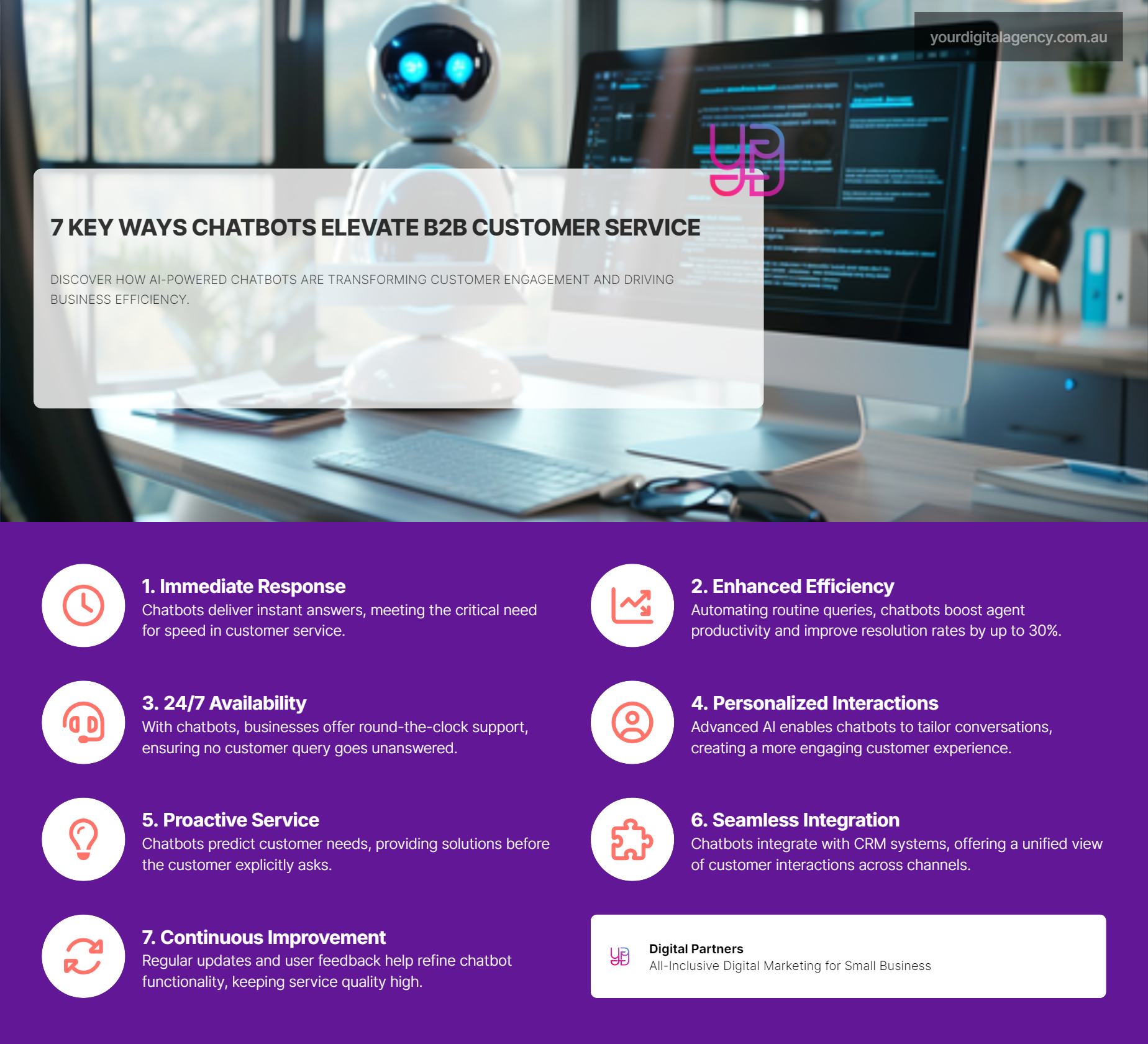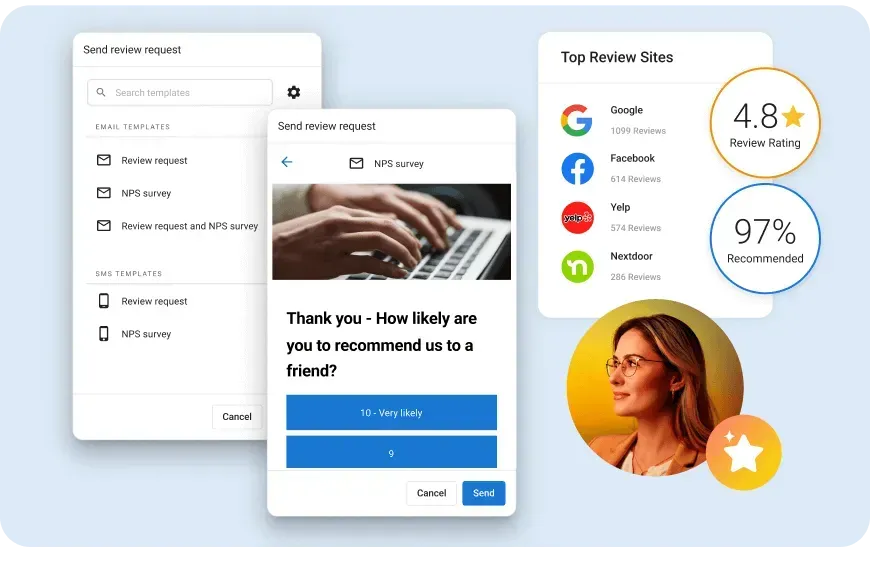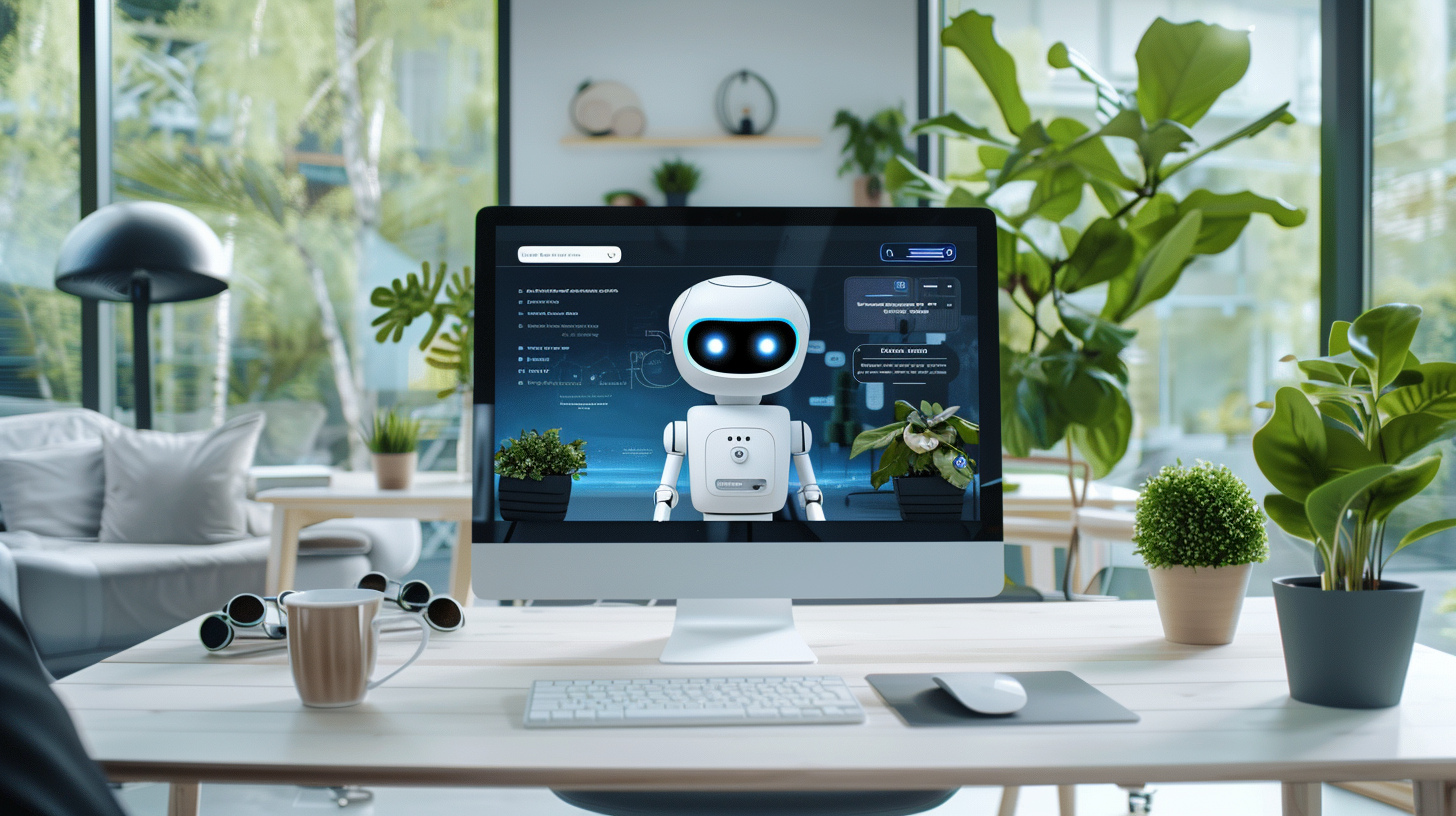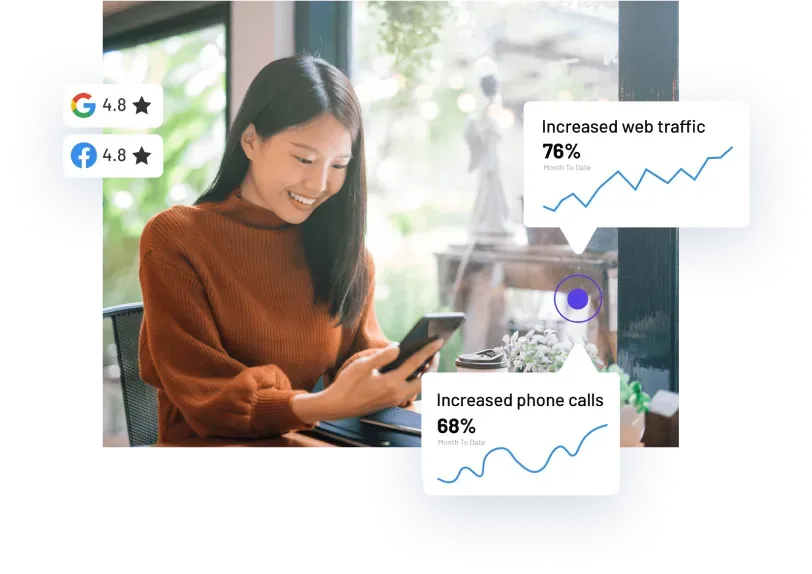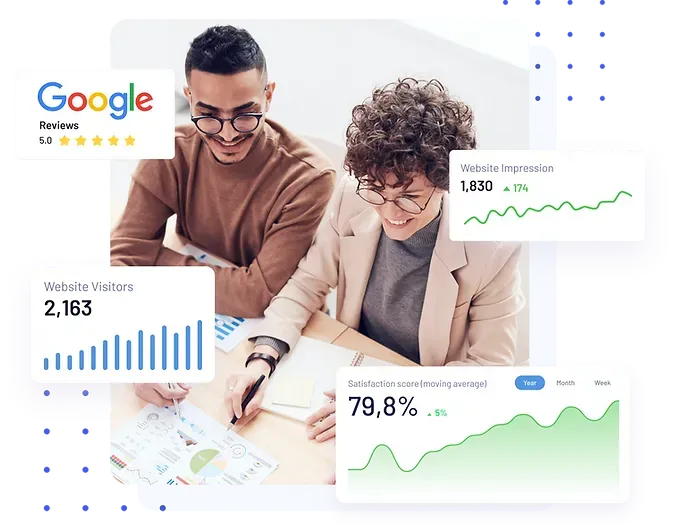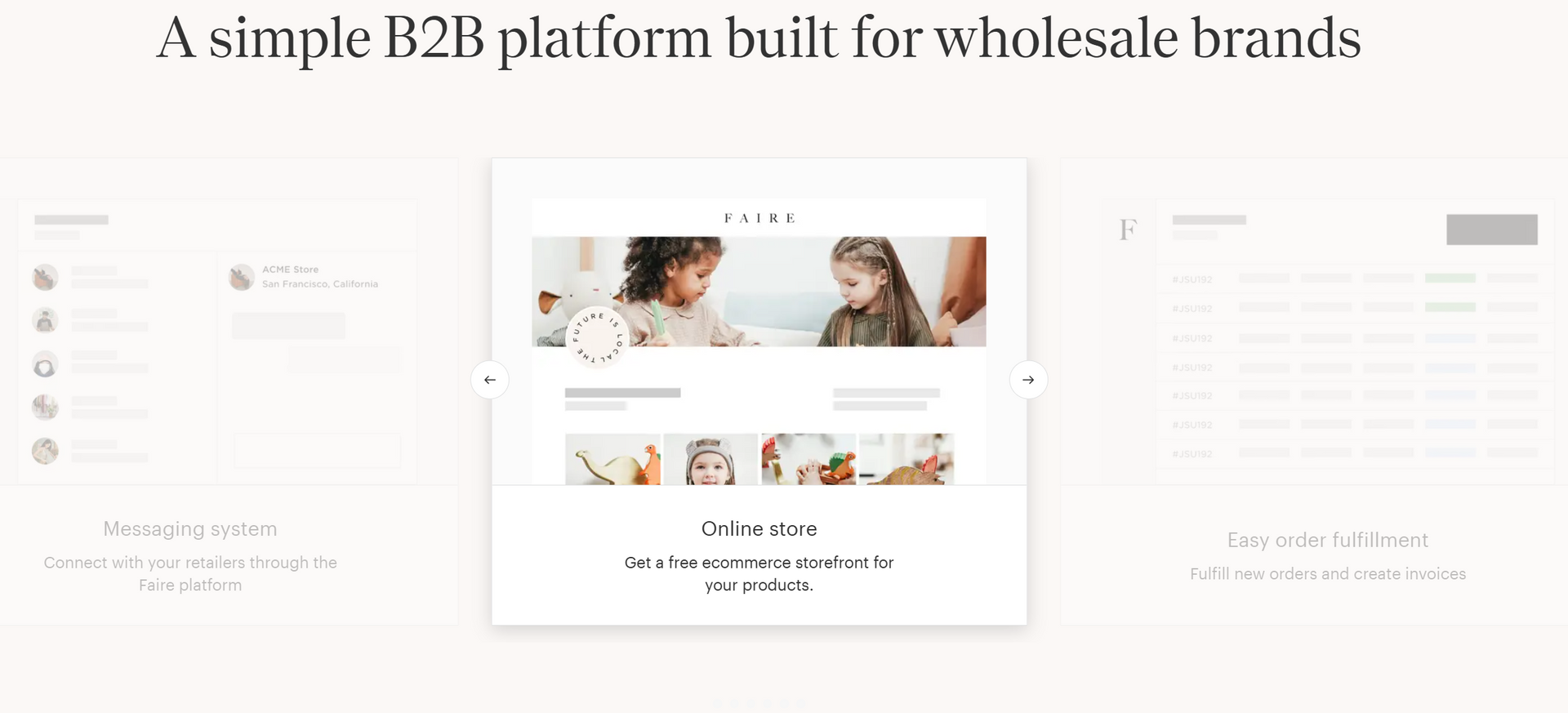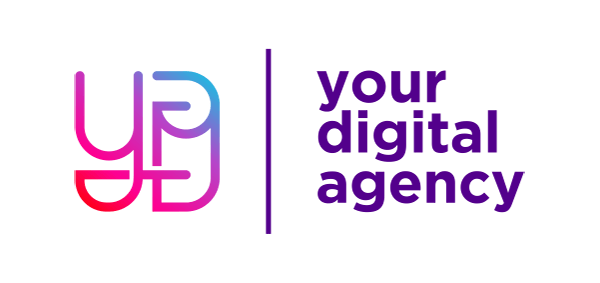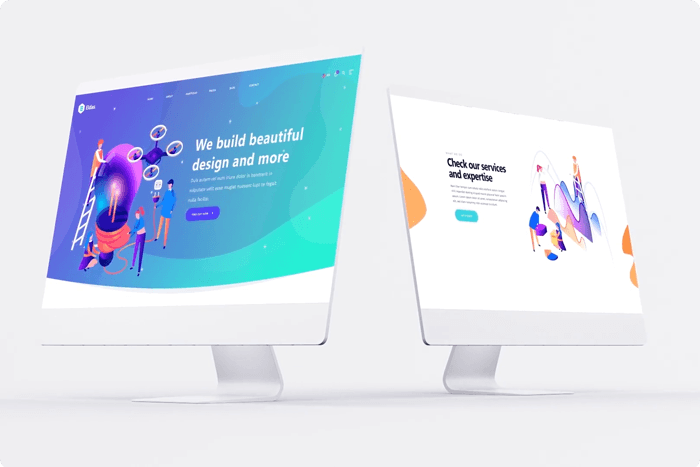USING CHATBOTS FOR ENHANCED CUSTOMER SERVICE IN MARKETING
As businesses continue to navigate the complexities of customer engagement in a digital-first environment, the integration of chatbots has emerged as a compelling solution. But what exactly makes these AI-driven tools so effective in enhancing customer service within B2B marketing?

As businesses continue to navigate the complexities of customer engagement in a digital-first environment, the integration of chatbots has emerged as a compelling solution. But what exactly makes these AI-driven tools so effective in enhancing customer service within B2B marketing? From streamlining interactions to providing timely responses, chatbots are redefining how businesses connect with their clients. Yet, one might wonder, how do these automated systems manage to not only meet but often exceed customer expectations?
The evolution of chatbot technology has brought us to a point where these tools not only answer queries but also predict and adapt to customer needs. By examining real-world applications and outcomes, such as the notable 30% improvement in resolution rates reported by some companies, we can uncover the layers of strategic implementation that make chatbots a smart choice for businesses aiming to improve their customer service. How are these advancements influencing the future trends in digital marketing strategies, and what does this mean for your business? Join us as we explore the dynamic role of chatbots in modern customer service frameworks.
Understanding the Impact: How Chatbots Enhance Customer Service
Chatbots have significantly enhanced customer service by boosting efficiency and satisfaction rates. A notable example of their impact is the 30% improvement in deflection and resolution rates observed in some B2B settings. This data suggests that chatbots are becoming essential in managing customer interactions. By addressing routine inquiries and issues, chatbots free up human agents to focus on more complex problems, thereby increasing overall team productivity and customer satisfaction.
The role of chatbots in enhancing first contact resolution is especially significant. They provide immediate responses to customer inquiries, which is crucial in a digital era where speed often correlates with customer satisfaction. This capability not only improves the customer's experience by providing them with instant answers but also enhances operational efficiency by reducing the volume of follow-up interactions required from human agents. This dual benefit underscores the transformative potential of chatbots in customer service frameworks.
Strategic Implementation: Integrating Chatbots into Your Marketing Funnel
Integrating chatbots in a B2B environment requires strategic planning and a clear understanding of the customer journey. Best practices include:
- Defining the most common customer queries and programming chatbots to handle these efficiently.
- Integrating chatbots with existing CRM systems to enable a seamless flow of information and a unified view of customer interactions across all channels.
Tailoring chatbot interactions to suit industry-specific needs is another critical aspect. For instance, a chatbot used by a B2B software company might need to be programmed to handle technical queries and provide detailed product information, whereas a chatbot deployed by a B2B e-commerce platform might focus more on order processing and shipment tracking. This customization ensures that chatbots meet the unique needs of each sector, thereby enhancing their effectiveness.
Beyond the Basics: Advanced Chatbot Features for Dynamic Engagement
Leveraging AI to understand and predict customer inquiries is at the forefront of chatbot evolution. Advanced AI algorithms can analyze past interactions and use this data to predict future customer questions and needs, allowing chatbots to provide proactive support. This not only enhances customer satisfaction but also helps in building a relationship with the customer, as the chatbot can anticipate needs and provide solutions without the customer having to ask explicitly.
Customizing chatbot responses for improved user interaction involves using natural language processing (NLP) to make interactions more human-like. This technology allows chatbots to understand and respond to queries with a level of nuance that was previously impossible, making the customer feel understood and valued. This is crucial in building trust and loyalty, particularly in a B2B context where relationships can significantly impact business outcomes.
Case Analysis: Real-World Successes with Chatbots
Documented improvements and efficiencies from existing B2B implementations provide compelling evidence of the value of chatbots. For instance, companies like LivePerson have reported significant enhancements in customer support metrics after integrating chatbots. These improvements are not just in speed and efficiency but also in customer satisfaction and retention, which are critical metrics for any business.
Insights from the LivePerson and Zendesk findings on chatbot performance further validate the effectiveness of these tools. According to LivePerson, integrating chatbots has helped businesses achieve up to a 30% improvement in their first contact resolution rates. Similarly, Zendesk highlights the capability of chatbots to quickly route and triage conversations, ensuring that customers are connected with the right resources without unnecessary delays. These findings underscore the tangible benefits that chatbots can bring to B2B customer service operations.
Future Trends and Continuous Improvement in Chatbot Technology
Predicting future developments in AI and chatbot capabilities involves looking at current trends and technological advancements. As AI becomes more sophisticated, we can expect chatbots to become even more intuitive and capable of handling complex interactions. This will further enhance their ability to provide high-quality customer service, making them indispensable tools in digital marketing strategies.
Businesses looking to stay ahead in the competitive digital landscape must focus on continuously refining their chatbot strategies. This involves regular updates to AI algorithms, training chatbots with new data, and integrating feedback from users to improve functionality and user experience. By doing so, businesses can ensure that their chatbots remain effective and continue to provide significant value in customer service operations.
Wrapping Up: The Strategic Edge of Chatbots in Customer Service
Chatbots have proven to be transformative in enhancing customer service, particularly within the B2B sector. By automating responses and handling routine inquiries, these AI-driven tools free up human agents to tackle more complex issues, thereby boosting overall productivity and customer satisfaction. The integration of chatbots not only streamlines interactions but also ensures timely responses, crucial in today's fast-paced digital environment. With advanced features like AI prediction and natural language processing, chatbots are becoming increasingly adept at providing personalized, proactive service that anticipates and meets customer needs effectively.
The evidence is clear: businesses that leverage chatbot technology witness notable improvements in efficiency and customer engagement metrics. As we look to the future, the role of chatbots is set to grow even more integral in shaping digital marketing strategies. They serve not only as tools for customer interaction but also play a pivotal role in building lasting customer relationships and driving business success. Remember, the current market demands speed and precision, and chatbots are at the forefront, ensuring your business doesn't just keep up but sets the pace.
